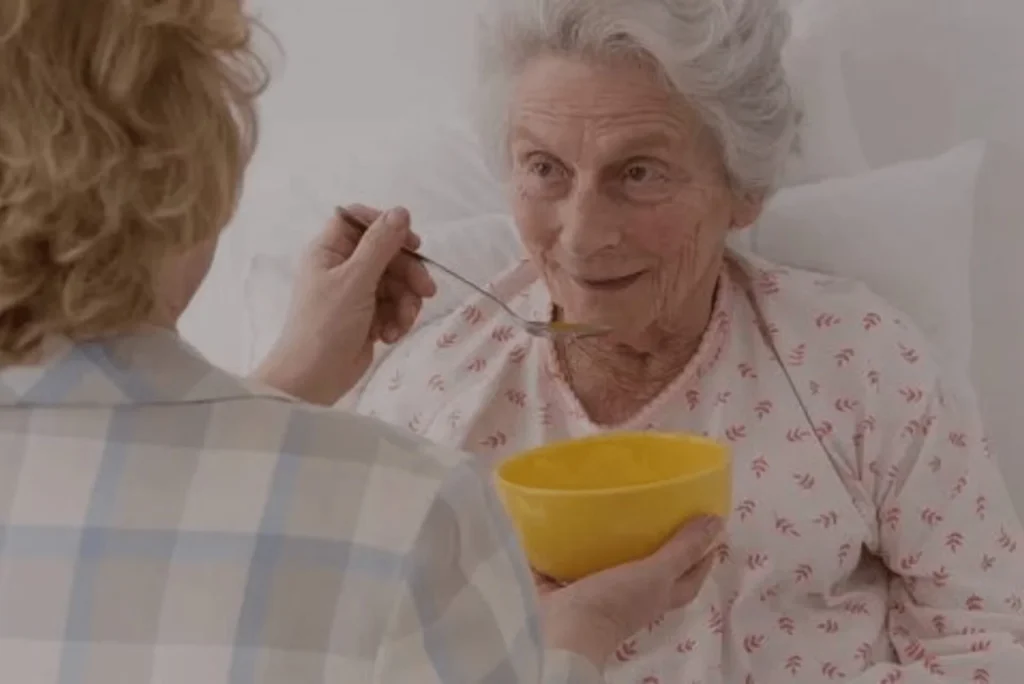Things You Should Know About Respite Care [2024 Guide]
In the complex world of caregiving, respite care plays a significant role. Although a lot of people receive care services, they may not be familiar with respite care and the services they can utilize.
With an increasing demand for the care services of their loved ones, families and caregivers may begin to experience burnout or frustration. They may require a short break from their duties and services, while a professional care team attends to the needs of the patient. In this article, we will explore the complex phenomenon of respite care, its benefits, who provides it, and who can benefit from it.
Check out Caring Hands Home Care, if you’re looking for the best Respire Care services in Florida!

What is Respite Care?
Respite care refers to the short-term and temporary care services provided to individuals who require assistance with daily activities due to their age, illness, or any physical or mental shortcomings.
It also allows the families and caregivers of the individual to take a break from their demanding and tough responsibilities while a professional care team looks after their loved ones. Respite care can be provided in various settings such as in-home care, assisted living facilities, or respite care centers.
The goal of respite care is to provide professional help and support to those who need it, along with their families and caregivers, ensuring the well-being of both of them.
Recommended Reading: 25+ Practical Tips on How to Care for Elderly Parents
Who can Benefit from Respite Care?
Respite care can be provided to anyone experiencing an inability to perform daily life tasks with effectiveness. Here are some groups of people who can benefit from respite care.
Individuals with Terminal Illnesses
Individuals receiving hospice and palliative care may also benefit from respite care services. It can offer patients specialized care and support in their end-of-life care while their families or caregivers attend to their own personal needs and take a temporary break from caregiving.
Older Adults
As we age, our ability to perform many daily life tasks may be significantly impacted. Our physical and cognitive abilities may seem to deteriorate. In such cases, we require a family member or a caregiver to look after us and provide assistance.
However, if the caregiver needs to attend to work, personal commitment, or their own health needs, the older adult can be arranged with respite care. The care services can provide seniors with assistance with daily tasks, access to social activities, companionship, promoting independence and overall well-being.
Children with Special Needs
Children with medical, developmental, or behavioral problems can also be provided with respite care services. The parents may find respite care particularly beneficial as it provides them with relief from the constant caring demands of looking after their child.
This can allow the parents to focus on their problems and other aspects of life, while their child receives utmost care and support from professionals.
Also, Read: Who Should Come First: Your Spouse or Elderly Parent?
Care Recipients
Individuals who require assistance with daily life activities due to health-related issues may also benefit from respite care. It provides them with opportunities for socialization, engagement in activities, and interaction with professional caregivers, which can enhance their overall well-being and quality of life.
Family Caregivers
Family caregivers who provide care and support to their loved ones with terminal illnesses, physical disabilities, cognitive impairments, or age-related conditions may experience physical emotional, or mental strain.
Respite care allows family caregivers with much-needed breaks, allowing them to rest, recharge, and attend to their own needs while ensuring that their loved ones continue to receive a high level of care.

Types of Respite Care Provided?
There are several types of respite care services provided to meet the specific needs and preferences of each care recipient and caregiver.
In-home Respite Care
This type of respite care provides relief to the primary caregivers and provides support and care to those in need of it in the comfort of their own homes.
The services provided in this type are assistance with daily activities, meal preparation, laundry, medication management, and light housekeeping.
Adult Day Care
Adult daycare provides social, therapeutic, and recreational activities to adults during the daytime. This type of respite care allows primary caregivers to attend to their work or run errands while their loved ones receive professional care.
Residential Respite Care
This type of respite care provides assistance to those who need it in living facilities such as assisted living facilities or respite care centers. The respite care team can provide 24-hour assistance, supervision, and access to medical care if needed.
Hospice Respite Care
Hospice respite care can be provided to patients receiving end-of-life care. The hospice teams provide strict supervision and support to the patient.
It also provides relief to the caregivers and families, allowing them to rest while their loved ones receive the utmost care.
Overnight Respite Care
Overnight respite care can be received when the caregiver needs to rest and recharge. This type of respite care can be provided in a facility or patients can receive in-home care depending on the preferences of the individuals and their families.
Emergency Respite Care
Emergency respite care is provided in sudden critical or unfortunate circumstances where the primary caregiver can’t fulfill the responsibility of looking after the individual requiring care and support.
The care team offers support until the caregiver can return back to their roles.

Vacation Respite Care
Vacation respite care allows the caregiver to take an extended break or go on a vacation. At the same time, the individual requiring assistance receives a high level of support and care from a professional care team.
The care recipient may receive care services in a respite care center or in the comfort of their own homes while the primary caregiver is absent.
Also, Read: What Are The Four Levels Of Hospice Care? [EXPLAINED]
Potential Benefits of Respite Care
Respite care provides a number of benefits for the care recipient and the caregiver as well. Some of them are given below.
Caregiver Wellbeing
Respite care provides caregivers with much-needed breaks. Caregivers are given a temporary leave from the constant caregiving schedule and are allowed to attend to their own needs.
They are allowed to rest and recharge while their loved ones receive care services. Respite care helps reduce stress, prevent burnout, and improve the overall quality of life of caregivers.
Improved Quality of Care
By allowing caregivers to take breaks and focus on self-care, respite care can help ensure that they can provide high-quality care to their loved ones. Caregivers who are well-rested and supported are better prepared to meet the needs of their care recipients.
Socialization and Engagement
Respite care programs often offer opportunities for care recipients to socialize with others and participate in recreational and social activities. This can help prevent social isolation, promote cognitive activities, and enhance the overall quality of life of care recipients.
Peace of Mind
Caregivers can be provided with peace of mind knowing their loved one is receiving quality care in a safe and professional environment. This can eliminate feelings of worry and guilt and allow caregivers to fully relax and recharge.
Improved Independence
Respite care can promote independence for care recipients by providing them with opportunities to practice daily living skills, engage in activities, and make decisions in a supportive environment. This can help maintain or improve their functional abilities and foster a sense of autonomy.
Support of Family Dynamics
Respite care can help strengthen family relationships by providing opportunities for family members to spend time together without the stress and demands of caregiving. It can also help prevent caregiver strain from affecting family dynamics and relationships.
Editor’s Pick: Find Out If In-Home Care Tax Is Deductible [2023 Updated]

Who Provides Respite Care
Respite care can be provided by a variety of individuals and organizations, in order to improve the quality of life of individuals who require it.
Professional Caregivers
Licensed home care agencies hire professional caregivers to provide care and support to clients who need it. These professional caregivers may provide help with ADLs, medication management, or companionship.
Volunteer Organizations
Some community-based organizations or non-profit groups provide respite care to individuals who require it. They may assist the care recipient with companionship, running errands, or assisting with daily life activities.
Adult Day Care
Adult daycare centers also provide respite care for individuals who require supervision and assistance. These centers allow the caregiver to drop off the care recipients and take a break from caring duties for the daytime.
Family Members and Friends
In some cases, respite care may be provided to the care recipients by their own family members and friends, who are willing and able to help out temporarily.
When is Respite Care Needed?
Respite care can be needed in various situations. Some of them include the following.
Caregiver Fatigue
When primary caregivers are overwhelmed, exhausted, or frustrated with the constant demands of providing continuous care, respite care can be provided.
Personal Commitments
Primary caregivers can also choose respite care when they have personal commitments such as work, medical appointments, or social events.
Emergencies
In case of sudden unfortunate emergencies, the primary caregiver may be unable to fulfill their duties. Therefore, respite care can be chosen to provide the care recipient with quality care in the absence of a primary caregiver.
Health-Related Issues
If the primary caregiver experiences health problems or undergoes medical procedures that temporarily limit their ability to provide care, respite care can be chosen.
Care Recipient’s Needs
Respite care may be needed when the care recipient’s needs exceed the capabilities of the primary caregiver or when specialized care is required.
Must Read: ADLs vs IADLs: What Are The Key Differences?

What is the Cost Consideration of Respite Care?
The cost of respite care can depend on several factors such as the type of care required, the duration of care needed, and the location of the care agency.
In-home respite care, which offers support within the caregiver’s own home, may be more affordable than residential or overnight care options, which often charge higher fees due to round-the-clock supervision and support.
Additionally, the level of care needed by the care recipient can influence costs, with individuals requiring specialized care or complex medical attention, the cost structure may be higher than those requiring simple and less complex assistance.
Moreover, caregivers should also consider additional fees such as transportation, medication management, and meal costs when budgeting for respite care. Exploring payment options, including insurance coverage, Medicaid, or financial assistance programs, can help reduce or eliminate the financial burden of respite care.
Conclusion
Looking after someone with a terminal illness, physical or mental disability, or just those with age-related conditions may get frustrating at times. Caregivers may tend to feel exhausted and experience caregiver burnout. Therefore, it is crucial to address the situation and intervene accordingly to prevent burnout. Respite care services can be provided in the comfort of individuals’ own homes, assisted living facilities, or respite care centers. However, it is essential to consider the needs and preferences of the care recipient and caregiver and use a collaborative approach before making a vital decision.
FAQs
Are respite care services available on weekends and holidays?
Yes, respite care provides their services even on weekends and holidays.
Does respite care ensure open communication with the recipient?
Yes, respite care ensures open communication between the care recipient and caregiver to ensure that the level of care provided is adequate and addresses the needs of the recipient.
Can respite care services be customized to meet the needs and preferences of the care recipient?
Yes, respite care services can be customized to meet the specific needs of the care recipient, providing personalized care and support
How do I know if my loved one is eligible for respite care services?
Eligibility for respite care services may vary depending on factors such as the individual's medical condition, caregiver situation, and available resources.
Can respite care assist with transportation to medical appointments?
Yes, respite care services can assist with transportation to medical appointments, ensuring continuity of care.


![Find Out If In-Home Care Tax Is Deductible [2023 Updated]](https://soluxhealth.com/blog/wp-content/uploads/2023/11/Is-In-Home-Care-Tax-Deductible-768x512.jpg)
![6 Activities of Daily Living & Need for Long-Term Care [UPDATED]](https://soluxhealth.com/blog/wp-content/uploads/2023/11/ADLs-and-IADLs-What-Are-They_-768x512.jpg)
